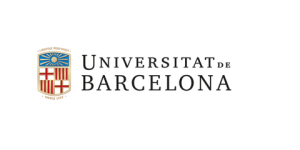WORKSHOP CALL
Conservation, Climate Change and Decolonisation
Exploring new frontiers in Conservation Social Science
Date: 29-30 October, 2019.
Venue: Institute of Environmental Science and Technology,
Universitat Autònoma de Barcelona (ICTA-UAB), Spain.
Understanding biodiversity conservation and its role in diverse society and contemporary social dilemmas faces diverse interlocking challenges. First, conservation is integrally bound up in the function and reproduction of capitalism, in the form of carbon/biodiversity offsets, (eco-) tourism in and around protected areas, and the broader commodification of ecosystem services. In fact, conservation is often misrecognised to be separate, even a refuge, from capitalism. If conservation (and climate change) policies are tied to an agenda of economic growth and development, they contribute to depoliticise and foreclose discussion on the nature of the social and economic forces causing biodiversity loss and climate change and hinder implementation of effective solutions to deal with these problems. Second, in search of solutions to anthropogenic climate change, transitions to low carbon societies can also entail dramatic re-organisations of conservation estate and policy – and therefore also society – whilst climate change itself might require changing conservation policy to cope with the habitat change it causes, changing current geographies of conservation. A third challenge is that conservation social science, although not as much as mainstream conservation science, primarily reproduces research practices and paradigms that have been developed in the West, which result in specific forms of knowledge, social organization and ways of apprehending the world.
The purpose of this 2-day workshop is to bring together conservation and climate change social scientists from all ages and from across the world to share their most recent research tackling at least one of the three challenges highlighted above. The workshop will combine four keynote presentations, with other very short presentations, networking activities and focus group discussions to plan diverse interventions in these debates including academic publications, more popular writings, new projects and further networking opportunities. We will also identify the suitable contributions for at least one special issue, which will be submitted to a multidisciplinary environmental social sciences journal by early 2020. Further papers and possible special issues may arise from other contributors.
If interested in participating, please send a 250 words max. article abstract by the 31/08, to esteve.corbera@uab.cat and d.brockington@sheffield.ac.uk. Accepted abstracts will be notified by 15/09.
Keynote speakers:
Sarah Bracking (King’s College London, UK)
Ashwini Chhatre (Indian School of Business, India)
Catherine Corson (Mount Holyoke College, USA)
Rosaleen Duffy (University of Sheffield, UK)
Organisers:
Esteve Corbera, Sara Maestre-Andrés, Giorgos Kallis and Sergio Villamayor (ICTA-UAB)
Dan Brockington and Rose Pritchard (University of Sheffield)
International promoters:
Elia Apostolopoulou and Bill Adams (UK), Jonathan Barton (Chile), Tor A. Benjaminsen (Norway), Jessica Dempsey (Canada), Leticia Durand and Fernanda Figueroa (Mexico), Rob Fletcher (The Netherlands), Jens F. Lund (Denmark), Christine Noe (Tanzania), Tracey Osborne and Paul Robbins (USA), Nitin Rai (India), Andreas Scheba (South Africa), Gert Van Hecken (Belgium), Maria Alejandra Velez (Colombia).


